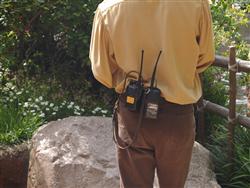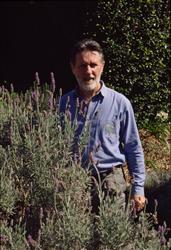Develop good research skills in Horticulture
Learn to identify emerging trends, develop practical research questions and methodology, collect data, and more. In this course, you'll work with your assigned academic to develop your ability to research and present a critical, written and numerical assessment of information related to social, technological, environmental and economic issues that impact on Horticulture today.
Course Duration: 100 hours
Course Structure
The course contains seven lessons:
- Determining Research Needs
- Overview
- Identifying research needs
- The research goal
- The research question
- Other questions to clarify the research goal
- Sources of information
- What information is required
- Depth and bredth of data
- Setting realistic research parameters
- Constraining factors
- Searching for Information
- Kinds of exploratory research
- Primary data research
- Secondary data research
- Literature reviews
- Research Methods
- Key research terms
- Experimentation
- A controlled environment
- Field trials
- Steps in collection and analysis of data
- Conducting a crop trial
- Setting up a Comparison trial
- Running a trial: records and recording
- Evaluating the trial
- Interviewing skills: procedure, asking questions, types of questions
- Ways of handling difficult questions
- Using Statistics
- Overview: Descriptive statistics, Inferential statistics
- Official statistics
- Reasons for using statistics
- Advantages of statistics
- Statistics: as guides and motivators
- Disadvantages of statistics
- Issues to consider
- Descriptive statistics
- Observed and expected rates
- Confidence intervals
- Standardizing
- Reliability of statistics
- Presenting statisticsa: pie charts, bar charts, histograms
- Descriptive statistics: mean, median, mode, variation, variance, standard deviation, correlation, probability
- Conducting Statistical Research
- Collecting quantitative data
- Conducting a survey
- Form of data
- Planning a formal survey
- Designing a questionnaire
- Common problems
- Research Reports
- Report writing tips
- Structure of a report
- The report online
- Research papers
- Referencing
- Reporting on a Research Project
- This lesson brings together what you have learned in previous lessons, in terms of critical assessment of other authors research papers or reports, and demonstrating your report writing skills.
For many students, their first experience with research occurred in school where they were  required to prepare a research report or a presentation on a particular subject. This is the fundamental level of research, and its aim is to gather information on a topic, which is later to be presented to an intended audience (a class, teacher etc). Examples are research on a particular country, animal, or political system.
required to prepare a research report or a presentation on a particular subject. This is the fundamental level of research, and its aim is to gather information on a topic, which is later to be presented to an intended audience (a class, teacher etc). Examples are research on a particular country, animal, or political system.
Another level of research aims at answering a research question (often called the thesis question). The information that is gathered and presented is chosen in order to answer that question. Examples of research questions are: What main social and political factors contribute to poverty in country X? Why is the Madagascan lemur an endangered species? How was language used to justify and maintain the Cold War last century? Well formulated and pertinent questions can lead to meaningful research projects that can greatly increase our understanding of the world and ourselves. The problem with this kind of research, though, is that it can be very difficult to know what questions to ask.
 What you will do in this course
What you will do in this course
-
Conduct preliminary investigations to determine areas where there is a valid need for research in social, technological and environmental issues that impact on horticulture today
-
Conduct an information search into a defined issue related to social, technological and environmental issues that impact on Horticulture today.
-
Explain research methods, including experimental techniques, commonly used.
-
Demonstrate and explain the basic statistical methods used for research.
-
Conduct a minor statistical research project into a well defined area, relevant to your area of study.
-
Prepare a research report in a format which conforms to normal industry procedures.
-
Demonstrate critical analytical thinking, reviewing skills and report writing skills
Benefits of Studying This Course
This course is devised for those with curious minds. Conducting research allows you to explore areas of your own interest, but it also enable you to make good sense of research findings you may read. Research underpins all sciences and is where new theories, methods and principles are born. By studying this course, you can not only advance your own interests but you might also discover ways you can help the filed of horticulture. The course is suited to people in the following fields:
- Horticulture Research
- Teaching
- Horticultural Science
- Botany
- Plant Breeding
- Garden History
QUESTIONS?
If you have any questions, our hortticulture tutors are here to help you - please get in touch with them by using our FREE COURSE COUNSELLING SERVICE.
Stay in Touch. Follow ACS on
Twitter
Facebook
Google